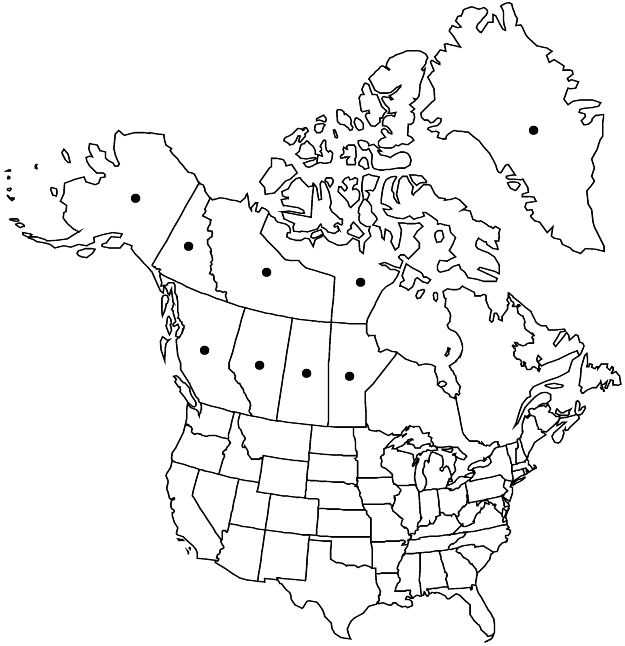familyRosaceae
subfamilyRosaceae subfam. Rosoideae
genusPotentilla
sectionPotentilla sect. Niveae
speciesPotentilla arenosa
subspeciesPotentilla arenosa subsp. arenosa
Difference between revisions of "Potentilla arenosa subsp. arenosa"
FNA>Volume Importer |
FNA>Volume Importer |
||
| Line 19: | Line 19: | ||
|elevation=0–1400 m | |elevation=0–1400 m | ||
|distribution=Greenland;Alta.;B.C.;Man.;N.W.T.;Nunavut;Sask.;Yukon;Alaska;Asia (Siberia). | |distribution=Greenland;Alta.;B.C.;Man.;N.W.T.;Nunavut;Sask.;Yukon;Alaska;Asia (Siberia). | ||
| − | |discussion=<p>Plants of <i></i>subsp.<i> arenosa</i> from Alaska and Yukon tend to be larger, with more open inflorescences and more distinctly petiolulate central leaflets, than plants in north-central Canada. Some collections from the range of <i>Potentilla furcata</i> (sect. Rubricaules) have red glands in the inflorescence, suggesting introgression between <i>P. arenosa</i> and <i>P. furcata</i>. Reported occurrences in Alberta and Saskatchewan (and the upper altitudinal limit given here) might actually be <i>P. hookeriana</i> as now circumscribed.</p> | + | |discussion=<p>Plants of <i></i></i>subsp.<i><i> arenosa</i> from Alaska and Yukon tend to be larger, with more open inflorescences and more distinctly petiolulate central leaflets, than plants in north-central Canada. Some collections from the range of <i>Potentilla furcata</i> (sect. Rubricaules) have red glands in the inflorescence, suggesting introgression between <i>P. arenosa</i> and <i>P. furcata</i>. Reported occurrences in Alberta and Saskatchewan (and the upper altitudinal limit given here) might actually be <i>P. hookeriana</i> as now circumscribed.</p> |
|tables= | |tables= | ||
|references= | |references= | ||
| Line 43: | Line 43: | ||
|publication year= | |publication year= | ||
|special status= | |special status= | ||
| − | |source xml=https://jpend@bitbucket.org/aafc-mbb/fna-data-curation.git/src/ | + | |source xml=https://jpend@bitbucket.org/aafc-mbb/fna-data-curation.git/src/f6b125a955440c0872999024f038d74684f65921/coarse_grained_fna_xml/V9/V9_302.xml |
|subfamily=Rosaceae subfam. Rosoideae | |subfamily=Rosaceae subfam. Rosoideae | ||
|tribe=Rosaceae tribe Potentilleae | |tribe=Rosaceae tribe Potentilleae | ||
Revision as of 20:36, 24 September 2019
Petioles with both long verrucose hairs and a lower layer of common to abundant short and/or stiff crisped hairs. 2n = 28; 42, 49, 56, 70 (Asia).
Phenology: Flowering spring–summer.
Habitat: Well-drained gravel, ridge tops, cliffs, dry soil banks, dry tundra
Elevation: 0–1400 m
Distribution

Greenland, Alta., B.C., Man., N.W.T., Nunavut, Sask., Yukon, Alaska, Asia (Siberia).
Discussion
Plants of subsp. arenosa from Alaska and Yukon tend to be larger, with more open inflorescences and more distinctly petiolulate central leaflets, than plants in north-central Canada. Some collections from the range of Potentilla furcata (sect. Rubricaules) have red glands in the inflorescence, suggesting introgression between P. arenosa and P. furcata. Reported occurrences in Alberta and Saskatchewan (and the upper altitudinal limit given here) might actually be P. hookeriana as now circumscribed.
Selected References
None.
Lower Taxa
None.